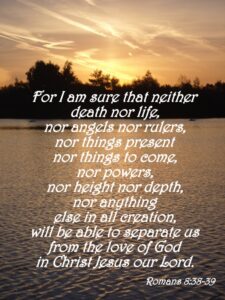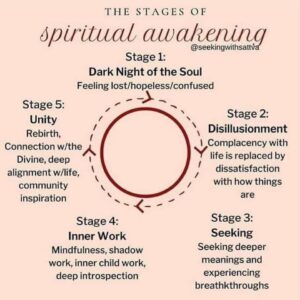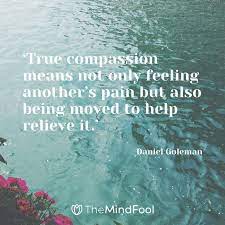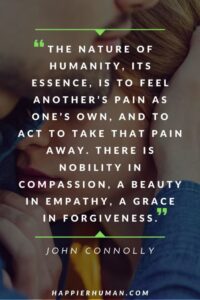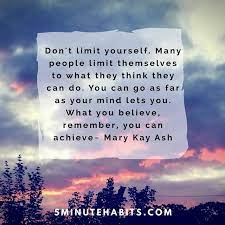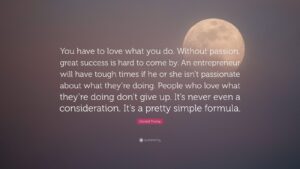Category: Spiritual Writings
What Is The Greatest Gift?
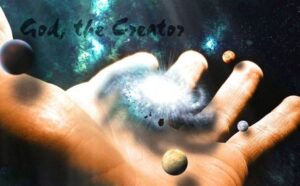 What is the greatest gift of all?
What is the greatest gift of all?
This may be answered in different ways depending upon who you ask and where they are in the journey of their human lives.
For some it may be a material thing, to others, a feeling or sense of satisfaction. Do you know that all of it is love? Not the emotional kind that comes and goes, but the essence of all that comes and flows.
 Love is the connective tissue, that which unites and holds all material things together. Your scientists do not understand gravity, nor will they, until they grasp the Force from which all arises.
Love is the connective tissue, that which unites and holds all material things together. Your scientists do not understand gravity, nor will they, until they grasp the Force from which all arises.
The greatest gift of all is coming to know that you cannot be separated from this Force, for it has birthed you, breathes you now, and holds you in the most intimate connection with all of creation.
You are so very loved.
The Stages Of Spiritual Awakening
Gurdjieff’s Philosophy About Man’s Development
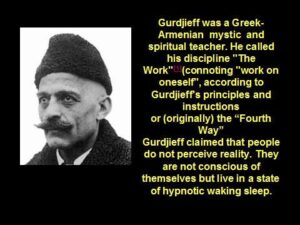 ” ‘There are,’ said, ‘two lines along which man’s development proceeds, the line of knowledge and the line of being.
” ‘There are,’ said, ‘two lines along which man’s development proceeds, the line of knowledge and the line of being.
In right evolution the line of knowledge and the line of being develop simultaneously, parallel to, and helping one another.
But if the line of knowledge gets too far ahead of the line of being, or if the line of being gets ahead of the line of knowledge, man’s development goes wrong, and sooner or later it must come to a standstill.’
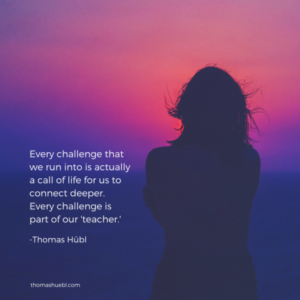 In ordinary thinking, people do not distinguish understanding from knowledge. They think that greater understanding depends on greater knowledge. Therefore they accumulate knowledge, or that which they call knowledge, but they do not know how to accumulate understanding and do not bother about it.
In ordinary thinking, people do not distinguish understanding from knowledge. They think that greater understanding depends on greater knowledge. Therefore they accumulate knowledge, or that which they call knowledge, but they do not know how to accumulate understanding and do not bother about it.
And yet a person accustomed to self-observation knows for certain that at different periods of his life he has understood one and the same idea, one and the same thought, in totally different ways.
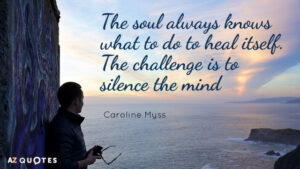 It often seems strange to him that he could have understood so wrongly that which, in his opinion, he now understands rightly. And he realizes, at the same time, that his knowledge has not changed, and that he knew as much about the given subject before as he knows now.
It often seems strange to him that he could have understood so wrongly that which, in his opinion, he now understands rightly. And he realizes, at the same time, that his knowledge has not changed, and that he knew as much about the given subject before as he knows now.
What, then, has changed? His being has changed. And once being has changed understanding must change also.
 The difference between knowledge and understanding becomes clear when we realize that knowledge may be the function of one center. Understanding, however, is the function of three centers. Thus the thinking apparatus may know something. But understanding appears only when a man feels and senses what is connected with it.
The difference between knowledge and understanding becomes clear when we realize that knowledge may be the function of one center. Understanding, however, is the function of three centers. Thus the thinking apparatus may know something. But understanding appears only when a man feels and senses what is connected with it.
 If Gurdjieff’s method of self-observation is to be an intimate pathway into our being, it can only do so if we are willing to truly expose ourselves to ourselves. What is needed, says Gurdjieff, is ‘inner sincerity.’
If Gurdjieff’s method of self-observation is to be an intimate pathway into our being, it can only do so if we are willing to truly expose ourselves to ourselves. What is needed, says Gurdjieff, is ‘inner sincerity.’
… we believe we are masters of ourselves, seldom noticing our own inner fragmentation and our lack of will and choice as a result of this fragmentation. We lose ourselves at every moment in one or another aspect of our lives, out of touch with the remarkable wholeness that is our birthright.”
If Your Compassion …
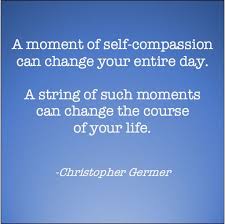 “If your compassion does not include yourself, it is incomplete.
“If your compassion does not include yourself, it is incomplete.
Buddha put it quite simply: ‘You can search the whole tenfold universe and not find a single being more worthy of love and compassion than the one seated here — yourself.’ Self-compassion and self-forgiveness are not weaknesses, but the roots of our courage and magnanimity.
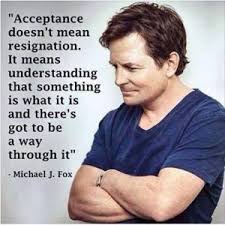 Sometimes compassion for ourselves and others seems hard to find. But even if you lose touch with these feelings during your most intense suffering, compassion is an essential part of our true nature. In fact, it is in this self-compassion and self-love that you find the strength to carry a lamp through your darkest nights.
Sometimes compassion for ourselves and others seems hard to find. But even if you lose touch with these feelings during your most intense suffering, compassion is an essential part of our true nature. In fact, it is in this self-compassion and self-love that you find the strength to carry a lamp through your darkest nights.
And it is by first practicing self-compassion that you find not only a way to hold your own struggles and sorrows in your heart — but through them you learn how to connect with the sufferings and sorrows of all those around.”
A Path with Heart: A Guide Through the Perils and Promises of Spiritual Life, Jack Kornfield, P. 215.
The Nature Of Humanity
Always Choose Courage
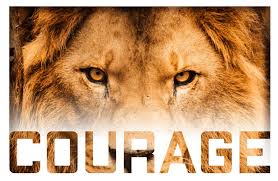 “Courage simply means that something is happening in spite of the fear. The fear is there, the trembling is there, but it is not stopping you, you are not being blocked or limited by it.
“Courage simply means that something is happening in spite of the fear. The fear is there, the trembling is there, but it is not stopping you, you are not being blocked or limited by it.
Don’t Limit Yourself
Savoring The Experience Of Your Ideal Life
 “Dharma actually means the life you should be living—in other words, an ideal life awaits you if you are aligned with your Dharma. What is the ideal life? It consists of living as your true self.” ~Deepak Chopra
“Dharma actually means the life you should be living—in other words, an ideal life awaits you if you are aligned with your Dharma. What is the ideal life? It consists of living as your true self.” ~Deepak Chopra
“The Sanskrit word ‘dharma’ has many meanings and most commonly translates to ‘life purpose’ and ‘the life we’re meant to live.’
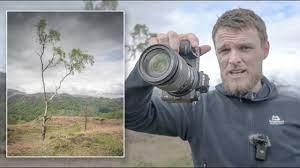 An uplifting result of finding your dharma is that you love life! You live with meaning, gratitude, and a greater enjoyment of the present moment’s gifts. You appreciate the experience of being alive. You’ve found what feels like your optimum, desired way to express your inner gifts. Finding your dharma helps you savor the fuller energy of an expanded life!
An uplifting result of finding your dharma is that you love life! You live with meaning, gratitude, and a greater enjoyment of the present moment’s gifts. You appreciate the experience of being alive. You’ve found what feels like your optimum, desired way to express your inner gifts. Finding your dharma helps you savor the fuller energy of an expanded life!
 In A New Earth, Eckhart Tolle states that true enjoyment does not depend on the nature of the task but on our state of being—we must aim for a state of deep presence. Go on long walks and observe (with presence) the natural elements around you. Appreciate the clouds passing in the sky, the smell of trees after the rain, and the sensation of the sun’s rays on your face.
In A New Earth, Eckhart Tolle states that true enjoyment does not depend on the nature of the task but on our state of being—we must aim for a state of deep presence. Go on long walks and observe (with presence) the natural elements around you. Appreciate the clouds passing in the sky, the smell of trees after the rain, and the sensation of the sun’s rays on your face.
 With even our most mundane tasks, Tolle recommends being mindful. Take time washing the dishes, cleaning the car, and caring for your plants. Each daily job can become an important moment to reflect on your love of life.
With even our most mundane tasks, Tolle recommends being mindful. Take time washing the dishes, cleaning the car, and caring for your plants. Each daily job can become an important moment to reflect on your love of life.
 In living as your true self, you know and love yourself. Find time to step in front of a mirror while looking into your eyes and say, ‘I love you, [say your name]. I love [say three things you like about yourself], and you deserve all the good things life has to offer.’ Try it for thirty days; it may change your life.
In living as your true self, you know and love yourself. Find time to step in front of a mirror while looking into your eyes and say, ‘I love you, [say your name]. I love [say three things you like about yourself], and you deserve all the good things life has to offer.’ Try it for thirty days; it may change your life.
Doing this reminds us of our importance to ourselves and the world.”
